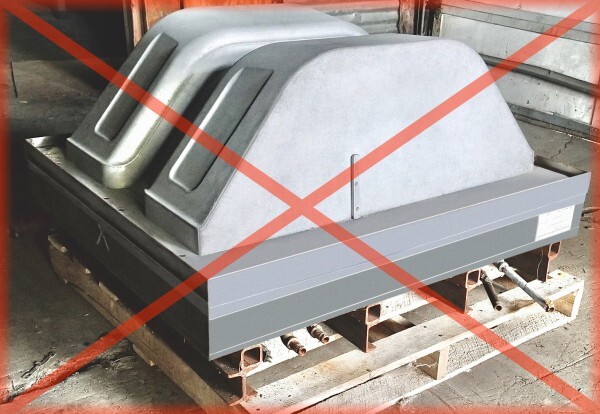In the world of custom plastic manufacturing, production volume, lead time, and part precision often determine the type of tooling used. For many thermoformers, especially when a plastic part must be produced on a rotary thermoforming machine, water-cooled aluminum tooling has traditionally been the only acceptable solution. This tooling type excels in high-volume environments due to its ability to dissipate heat quickly and deliver consistently precise parts. However, water-cooled aluminum tools are also expensive—particularly for projects where budget constraints make investing in premium tooling difficult.
Recognizing this challenge, Arrowhead Plastic Engineering developed a proprietary solution: Eco-Tool thermoforming tooling. Designed to bridge the gap between performance and affordability, Eco-Tool offers a more cost-effective alternative to aluminum molds—without compromising production speed or part quality for many applications.
Water-cooled aluminum tools are typically machined from billet aluminum or created through casting processes. Channels for cooling water are integrated to prevent residual heat buildup, which can affect tool dimensions and lead to warped parts or inconsistent demolding. When using a rotary thermoformer—where parts are molded in rapid succession—managing thermal expansion is critical for part consistency and process control.
However, not every thermoformed part demands the tight tolerances or performance characteristics that justify the cost of aluminum. For parts with slightly more forgiving specs—but still requiring production on a rotary machine—Eco-Tool thermoforming tooling offers an ideal solution. Developed and manufactured in-house at Arrowhead’s Muncie facility, Eco-Tool is a composite-based thermoforming tool that delivers high thermal stability and dimensional repeatability, at a fraction of the cost of traditional metal tooling.
Arrowhead’s Eco-Tool™ technology typically reduces tooling investment by 25%–50% compared to water-cooled aluminum molds. Despite the cost savings, these tools are engineered for durability and production compatibility. The unique laminate schedule, mold structure, and configuration allow Eco-Tools to be used reliably on high-throughput rotary thermoformers without the risk of overheating, surface degradation, or part warping.
One of the key advantages of Eco-Tool thermoforming tooling is its ease of modification. Unlike aluminum, which can be time-consuming and costly to adjust, composite-based tools allow for quicker, more flexible changes—making them ideal for evolving designs or projects where revision cycles are expected. This flexibility adds significant value during product development or mid-run design shifts.
In addition to performance benefits, all Eco-Tools are manufactured in-house at Arrowhead’s fiberglass molding facility. This tight vertical integration ensures quality control, reduced lead times, and rapid tooling iterations—helping customers bring products to market faster and more affordably.
If your thermoformed plastic part requires a rotary forming process but your budget can’t accommodate aluminum tooling—or if you need tooling that’s easier to update—Arrowhead’s Eco-Tool thermoforming tooling may be the solution you’re looking for. Our team will evaluate your part’s requirements and determine if an Eco-Tool is the right fit for your project.
Interested in learning more? Contact Arrowhead today to discuss your application and see how our Eco-Tool™ technology can support your thermoforming goals.


